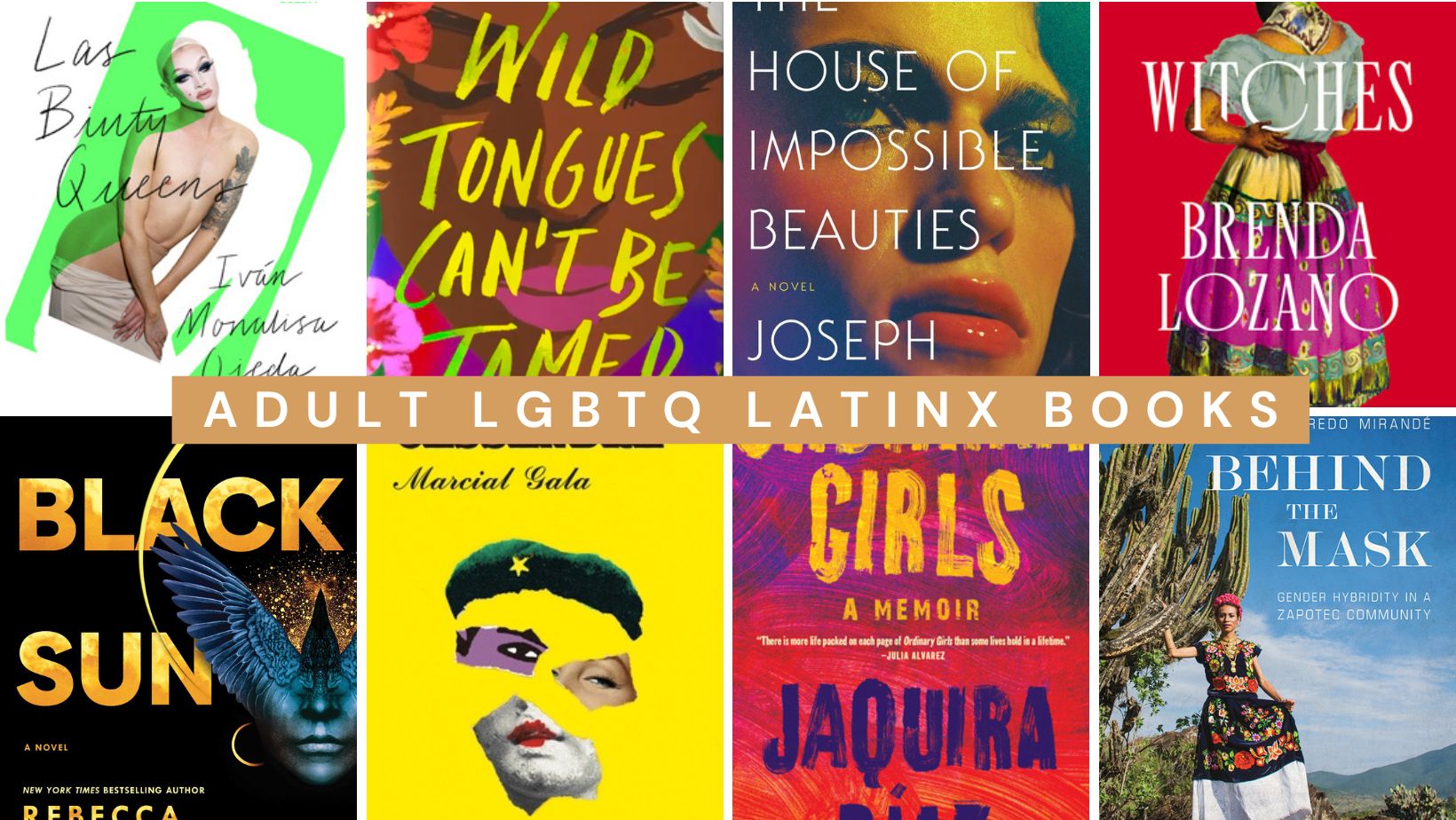Queer Adult Latin American Lit Certainly Exists–And Here’s the Best of It

Finding queer adult Latin American books was surprisingly difficult. I looked at other book lists, and it’s typically the same ten books recommended repeatedly—probably because there are not that many out there. Unfortunately, that makes sense because of the rampant homophobia and strict gender binary that’s common in the Latin American community, thanks to Catholicism. Only recently has there been pushback against machismo in our community.
On the positive side, queer Latin books are being published more often in young adult and middle-grade genres, so hopefully, the trend will grow as the readers and writers age up. We all can use more LGBTQIA+ books from all ethnic backgrounds.
Here are some of the adult books that finally get to tell our stories.
Black Sun by Rebecca Roanhorse
This is the first book in a planned trilogy based on indigenous South American communities. I’ve been waiting for an adult Latin American epic fantasy series ever since I read Harry Potter and Lord of the Rings. This book has a terrifying magic system, non-Eurocentric political systems, prophecies, and a chosen one (of course). It’s easy to jump through different points of view in each chapter, since each character’s circumstance and drive are unique and memorable.
Dreaming of You by Melissa Lozada-Oliva
This book is perfect for those who are a sucker for poetry or a verse narrative. Lozada-Oliva writes about queerness, love, loss, obsession, Latin culture, and celebrities’ effects on society. There’s even a part that feels part-seance, part-observance, part-Greek chorus.
Wild Tongues Can’t Be Tamed edited by Saraciea J Fennell
This is a collection of 15 essays by some of the most influential contemporary Latin writers. This collection covers many topics: the diaspora, anti-Blackness in the Latinidad, confronting cautionary tales, debunking Latin stereotypes, transracial identity, addiction, and growing into yourself. This collection has a lot of celebration, self-discovery, and grief. It may be my favorite contemporary essay collection.
Las Biuty Queens by Iván Monalisa Ojeda
It’s so annoying when reviewers describe every book as “raw,” but this book really, truly is raw. There is something so honest about Ojeda’s story collection. The Chilean transgender author writes about meth addiction, sex work, queer friendship groups, and drag. Those who’ve lived this life will recognize the honest depictions of this experience. Those who have not can glimpse non-cis, non-hetero, Latin life.
Witches by Brenda Lozano
This novel is short but packs a punch with its literary thriller voice. The book is the journalistic investigation of our narrator Zoe who is trying to investigate the mysterious death of Paloma by interviewing her curandera cousin, Feliciana. I’ve been hoping, praying, and wishing for a book that centers Mexican curanderes, but this exceeds my expectations by being queer and femme oriented.
Call Me Cassandra by Marcial Gala
Set in revolutionary Cuba in the ’70s, this novel is a coming-of-age story of a child born in the wrong body. Rauli’s home life is far from perfect, and he escapes in Greek myths like any neurodivergent queer kid. Through these stories, Rauli realizes they’re the reincarnation of the prophet Cassandra. This novel is a brilliant combination of Latin and Greek tragedy.
The House of Impossible Beauties by Joseph Cassara
For fans of the TV show Pose, this novel is based on the true story of the legendary house of Xtravaganza. You follow the house members during the AIDS epidemic in New York City. To live in the ball scene in the ’80s through the pages of this book is a dream.
Ordinary Girls by Jaquira Díaz
This memoir should be read (or listened to) when you have the emotional capacity to do so. Díaz writes about her struggles with mental health, sexual assault, complicated blood families, found families, and more in beautifully written prose.
Behind the Mask by Alfredo Mirandé
The subtitle for this nonfiction book is “Gender Hybridity in a Zapotec Community,” which is the best summary for this book. This book defies the gender roles forced upon indigenous communities in present-day Mexico by the Spanish using Catholicism. This confronts machismo ideologies of gender and sexuality that remain in the fabric of our society today by showcasing muxes.
Mean by Miriam Gurba
Myriam Gurba is now known as the whistleblower for exposing American Dirt as a novel written by a white woman, exploiting the Mexican immigrant experience. Before her essay went viral, she wrote a brilliant memoir called Mean. It’s a biting coming-of-age journey as a queer, mixed-race Chicana. It reads almost like a thriller, ghost story, and confessional. It’s such a strong piece of writing about survival and how one becomes … mean.
Born Both: An Intersex Life by Hida Viloria
This memoir is an eye-opening story of the author’s journey learning they’re intersex. Once they learned about their biological differences, they began to queer their gender identity to see what lies outside the gender binary. This is a fantastic book about self-discovery, finding community, and learning about the intersex community.
Empanada: a Lesbiana Story en Probaditas by Anel I. Flores
If you’re in a reading slump, a shorter book is usually a better fix. Anel Flores’s work is unapologetically Latina, Chicana, and lesbian. Her writing style includes a lot of Spanish and Spanglish, but includes explanations for non-Spanish speakers. Like an empanada, each vignette in this book is small, but it packs a punch.
Hola Papi by John Paul Brammer
This was one of my favorite memoirs to listen to in 2021. John Paul Brammer is hilarious. He tells the story of being queer and mixed-race in America without cutting corners. Being hypersexualized and fetishized on dating apps? Check. Maneuvering multiple facets of your identity at the same time (especially how they interject)? Check. Brammer weaves hilarious anecdotes and poignant social commentary effortlessly in this memoir.
(featured image: Simon & Schuster, Astra House, Saga Press, University of Arizona, Ecco)
Have a tip we should know? tips@themarysue.com